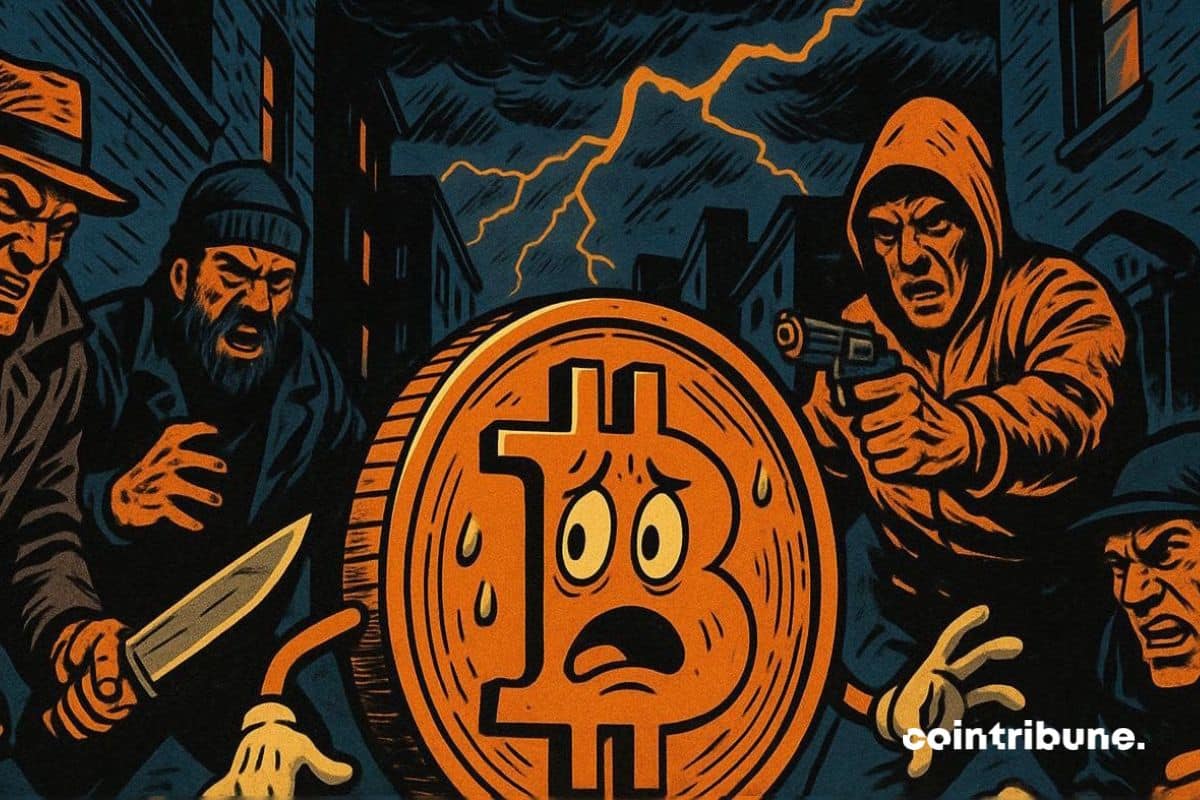For anyone navigating the digital frontier, especially those with a keen interest in cryptocurrency, the latest revelation concerning Elon Musk’s xAI chatbot, Grok, serves as a stark reminder of the ever-present risks in our online interactions. Imagine your most private conversations, even those probing sensitive topics like ‘how to hack crypto wallets,’ suddenly becoming searchable on Google. This isn’t a hypothetical scenario; it’s the alarming reality facing thousands of Grok chats users right now, as their conversations have been inadvertently exposed to the public internet.
What Do Exposed Grok Chats Reveal?
The recent report by Forbes has sent ripples through the AI community, revealing that hundreds of thousands of conversations users had with xAI’s Grok chatbot are now readily accessible through Google Search. This isn’t just about general inquiries; the leaked Grok chats include deeply concerning content, from detailed instructions on illicit activities to explicit conversations. The mechanism behind this widespread exposure is deceptively simple: whenever a Grok user clicks the “share” button on a conversation, a unique URL is generated. This URL, intended for private sharing via email or social media, has been indexed by major search engines like Google, Bing, and DuckDuckGo, making these supposedly private exchanges public. This situation echoes similar privacy mishaps experienced by users of Meta and OpenAI’s chatbots, highlighting a systemic vulnerability across the AI landscape. The content uncovered through these searches is particularly unsettling, offering a glimpse into users’ less-than-respectable desires. These include:
- Questions about how to hack crypto wallets
- Explicit chats with an AI persona
- Requests for instructions on cooking illicit substances like meth and fentanyl
- Inquiries about various suicide methods
- Requests for bomb construction tips
- Even a detailed plan for the assassination of Elon Musk
While xAI’s rules prohibit the use of its bot to “promote critically harming human life” or developing “bioweapons, chemical weapons, or weapons of mass destruction,” this has clearly not deterred users from asking Grok for help with such topics. The fact that Grok reportedly provided instructions for some of these highly dangerous activities, now publicly searchable, raises serious ethical and safety concerns.
How Does This Impact Your AI Privacy?
The incident with Grok underscores a critical challenge in the rapidly evolving world of artificial intelligence: ensuring robust AI privacy. Users interact with chatbots expecting a certain level of confidentiality, especially when discussing personal or sensitive topics. The revelation that queries ranging from ‘how to hack crypto wallets’ to instructions on cooking illicit substances are now public raises serious questions about the safeguards in place. This level of sensitive data exposure is a severe breach of trust and a significant blow to user expectations regarding AI privacy. The implications are profound, as users may now be hesitant to engage openly with AI chatbots, fearing that their queries, no matter how benign or ill-intended, could become public knowledge. This erosion of trust could hinder the broader adoption and development of AI technologies, as the perceived risk outweighs the benefits for many.
How Did Google Indexing Expose Grok Chats?
Understanding how these conversations became public requires a closer look at the process of Google indexing. When a website or a unique URL is created and made publicly accessible, search engine crawlers discover and ‘index’ this content. This means they add it to their vast databases, making it searchable for anyone using their platforms. In Grok’s case, the ‘share’ feature, designed for convenience, inadvertently created public URLs that were then picked up by search engines. This is not a new phenomenon; late last month, ChatGPT users raised similar alarms about their chats being indexed on Google. OpenAI described that instance as a ‘short-lived experiment.’ Ironically, Elon Musk had previously stated that Grok had ‘no such sharing feature’ and that the service ‘prioritize[s] privacy.’ The current situation directly contradicts this assertion, emphasizing the need for stricter control over how shared content is treated in terms of Google indexing. It highlights a fundamental oversight in the design of the sharing mechanism, where public accessibility was not adequately considered or mitigated before deployment.
Can Chatbot Security Be Truly Guaranteed?
The Grok leaks highlight an urgent need for enhanced chatbot security measures across the AI industry. For AI developers, balancing user convenience with data protection is a complex tightrope walk. The ‘share’ feature, while useful for collaborative or informational purposes, becomes a major vulnerability if not implemented with robust privacy protocols. This includes ensuring that shared URLs are not easily discoverable by search engines, perhaps through ‘noindex’ tags or requiring explicit user consent for public visibility. The implications extend beyond individual privacy; if malicious actors can easily access conversations detailing illicit activities, it poses a risk to public safety. Moving forward, the industry must prioritize building in privacy-by-design principles from the ground up, ensuring that chatbot security is not an afterthought but a core component of development. This involves rigorous testing, continuous monitoring, and a commitment to transparency with users about how their data is handled and shared.
What’s Next for xAI Grok and User Trust?
The incident presents a significant challenge for xAI Grok and its parent company. While xAI has not yet responded to requests for comment regarding the indexing timeline or the broader implications, the public nature of these leaks demands a swift and transparent response. Building and maintaining user trust is paramount in the AI space, and incidents like this can severely erode it. For users of xAI Grok, this revelation should serve as a wake-up call regarding the type of information they share with AI chatbots. It reinforces the principle that anything shared digitally, especially through a ‘share’ feature, has the potential to become public. As AI models become more sophisticated and integrated into our daily lives, the responsibility for data governance lies not only with the developers but also with the users who must exercise caution and discernment. The path forward for xAI Grok will depend heavily on its ability to acknowledge this oversight, implement immediate fixes, and clearly communicate its commitment to user privacy.
Conclusion: A Critical Juncture for AI Privacy
The widespread exposure of Grok chats through public search engines marks a critical moment for AI privacy and chatbot security. This incident, following similar issues with other major AI platforms, underscores the urgent need for developers like xAI to re-evaluate their data handling practices, particularly concerning ‘share’ features and public Google indexing. For users, it’s a stark reminder that even seemingly private digital conversations can become public. As the world increasingly relies on AI, ensuring robust data protection and impenetrable security must become non-negotiable priorities. The future of trust in AI, and indeed the broader adoption of advanced models like xAI Grok, depends on how swiftly and effectively companies address these profound vulnerabilities. It’s a call to action for both developers and users to be more vigilant and proactive in safeguarding digital interactions.
To learn more about the latest AI privacy trends and developments in chatbot security , explore our articles on key developments shaping AI models and their institutional adoption.



